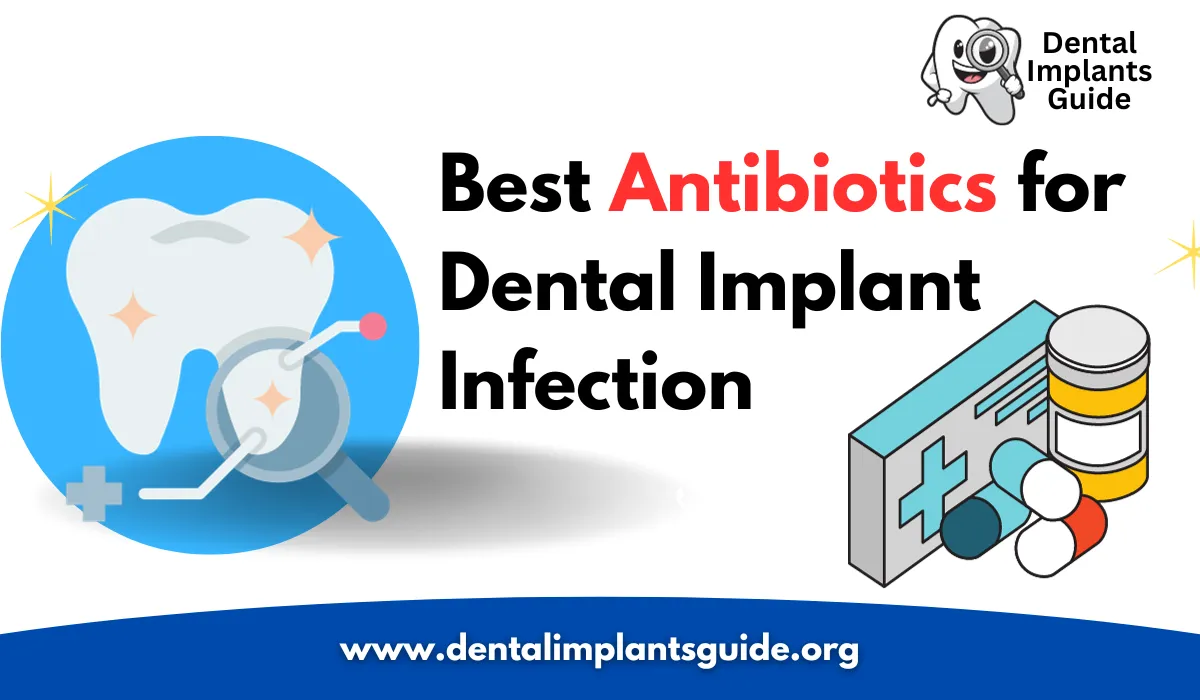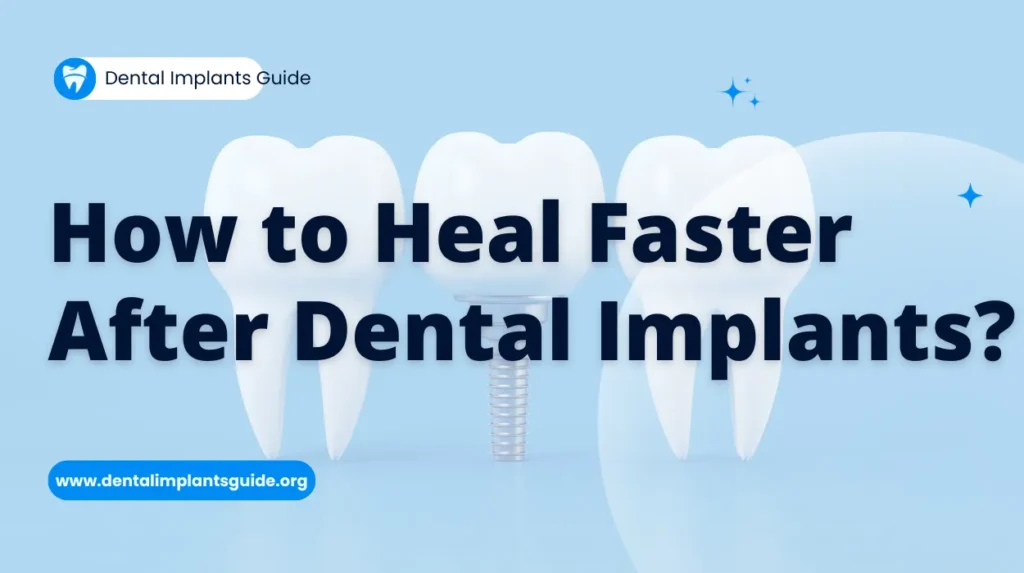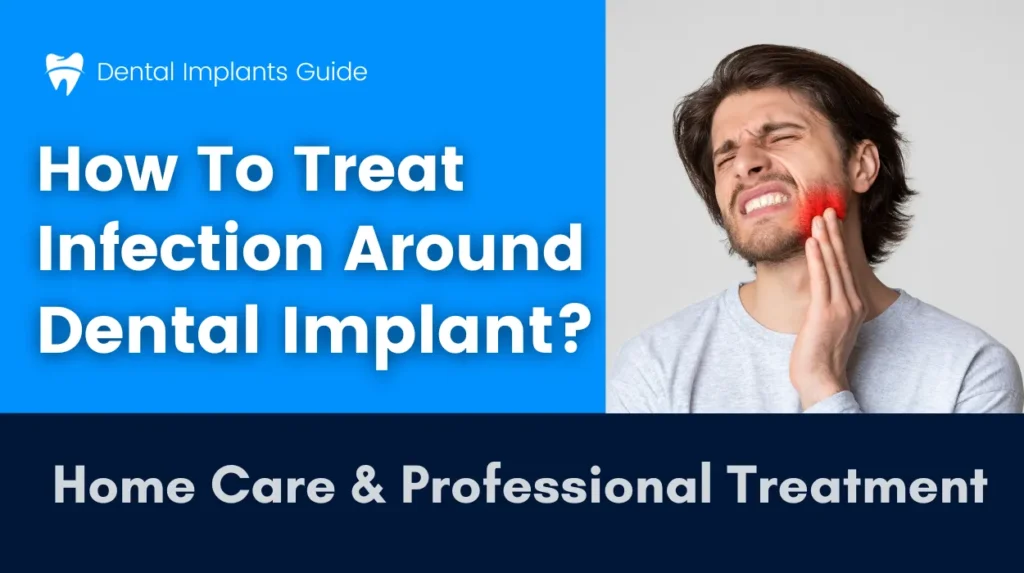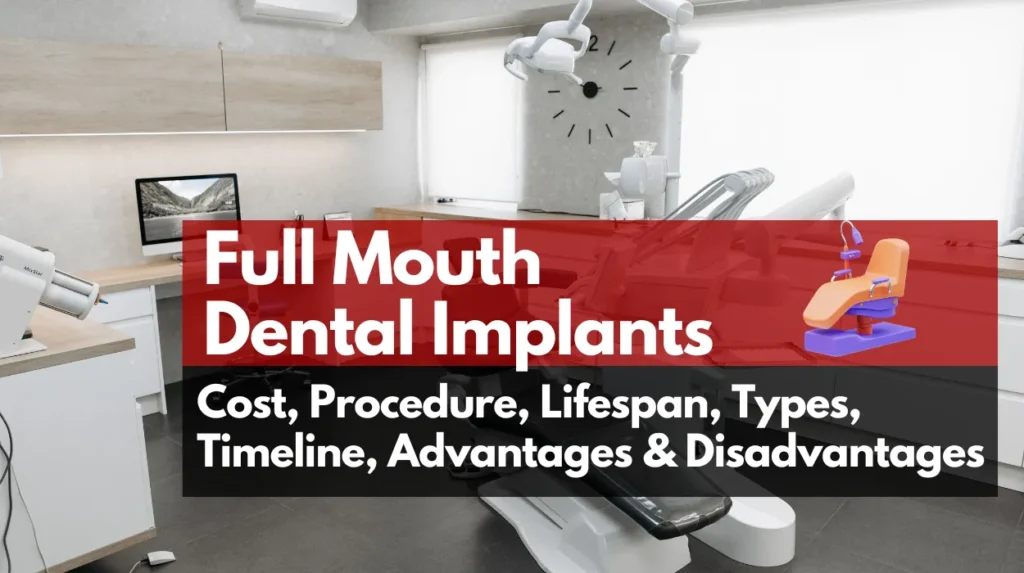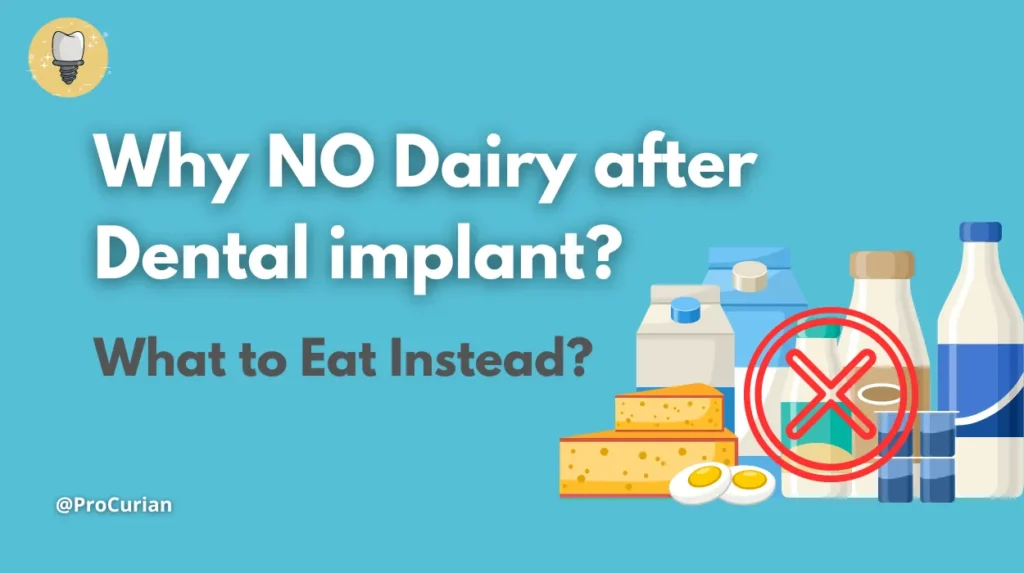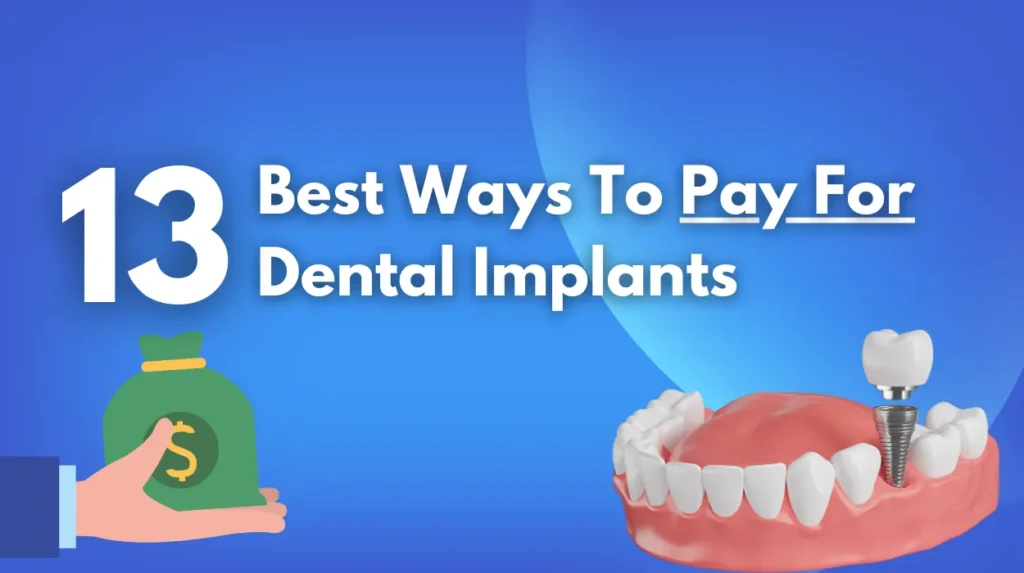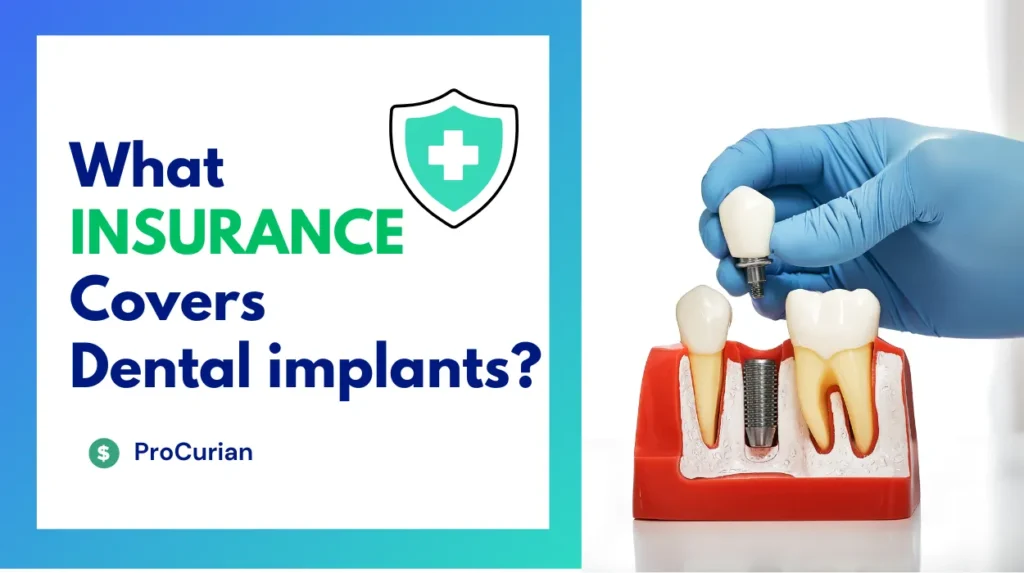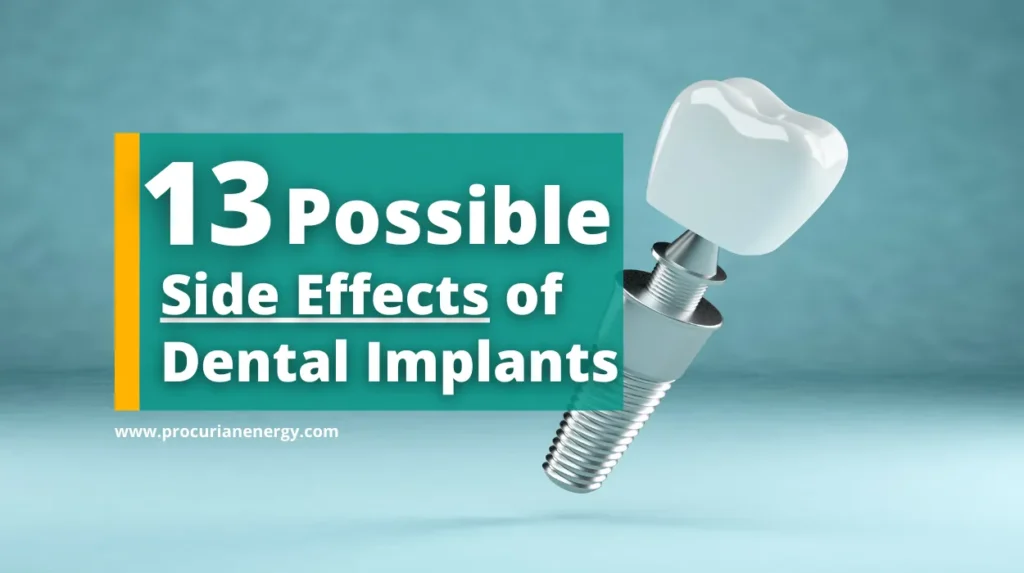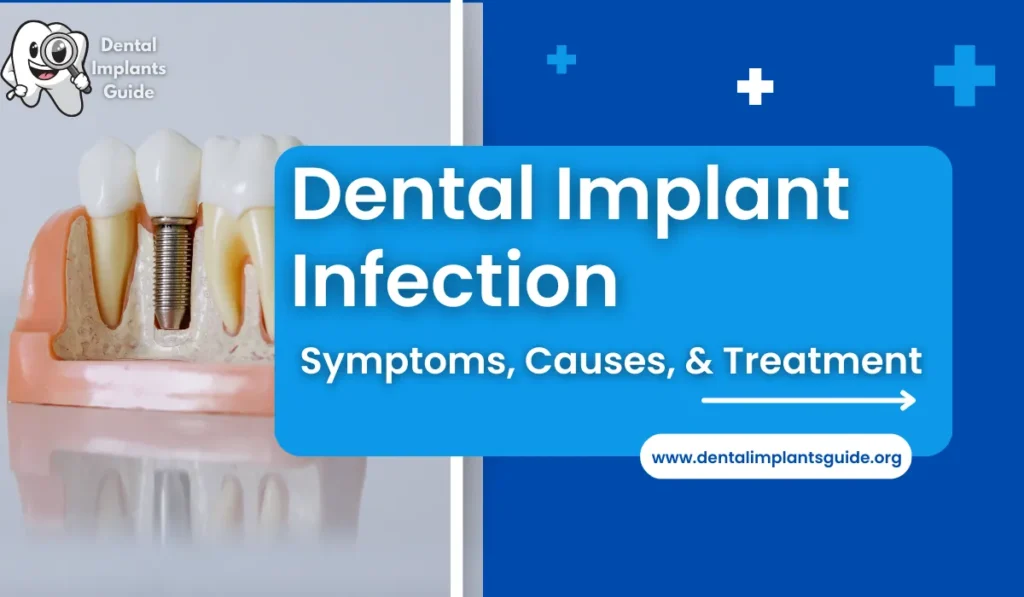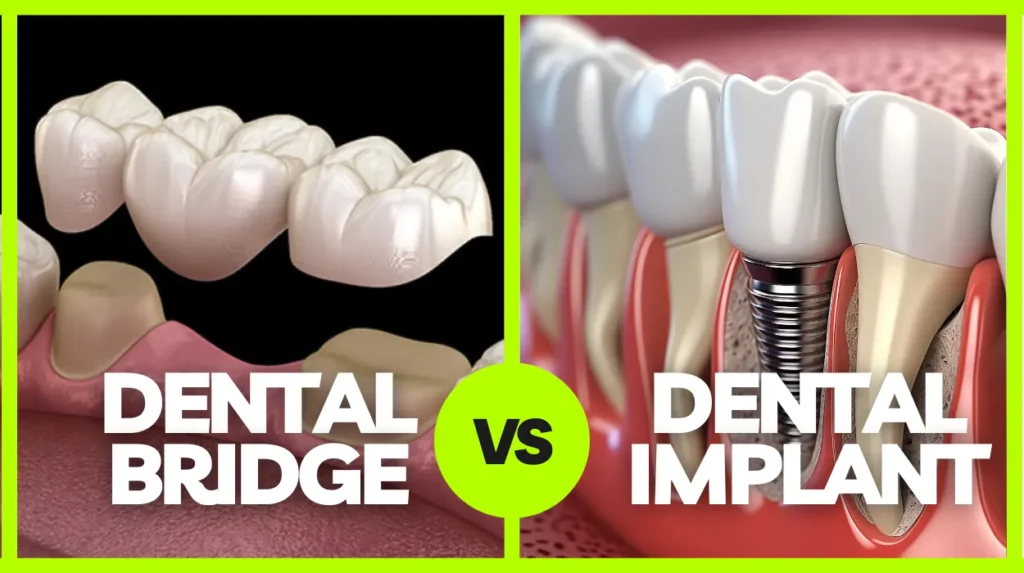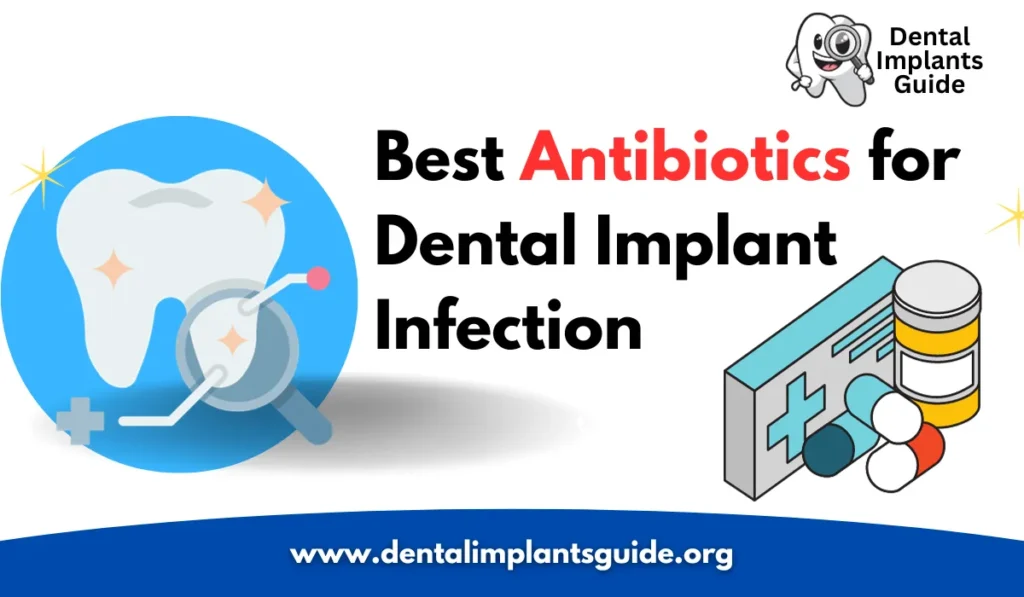
Hey there, beautiful smiles and future dental implant champions! You might be wondering which antibiotics work best for treating an infection in a dental implant. It’s essential to get the necessary care as soon as possible because dental implant infections can be serious.
This blog post will discuss the best antibiotics for dental implant infections, as well as the suggested dosage and course of treatment. We’ll also go over some tips for appropriately and safely using antibiotics.
What Is a Dental Implant Infection?
A dental implant is a fantastic way to replace a missing tooth. However, like any surgical procedure, it carries some risks. Infections can occur during or after the implant procedure. Signs of an infection are:
- Swelling around the implant site.
- Pain or discomfort.
- Pus drainage.
- Bad taste in your mouth.
- Fever.
Related Article ➦ Dental Implant Infection: Symptoms, Causes, and Treatment
Best antibiotics for dental implant infection
The best antibiotics for dental implant infection are those that are effective against the types of bacteria that are most likely to cause the infection. These bacteria are:
- Staphylococcus aureus
- Streptococcus species
- Enterococci species
- Anaerobic bacteria
Here’s a list of some commonly prescribed antibiotics for dental implant infections:
| Antibiotic Name | Brand Names | How It Works? |
|---|---|---|
| Amoxicillin | Amoxil, Trimox | Stops bacteria from building their cell walls. |
| Clindamycin | Cleocin | Disrupts the bacteria’s protein synthesis. |
| Metronidazole | Acea, Anabact, Flagyl, Metrogel, Metrosa, Rosiced, Rozex, Vaginyl, Zidoval, Zyomet | Treat infections caused by anaerobic bacteria and certain parasites |
| Azithromycin | Zithromax | Prevents bacteria from multiplying. |
| Penicillin VK | Veetids,Pen-VeeK | Hinders the bacteria’s ability to form cell walls. |
| Tetracycline | Sumycin, Actisite, and Achromycin V | Penetrate bone and connective tissue |
1. Amoxicillin
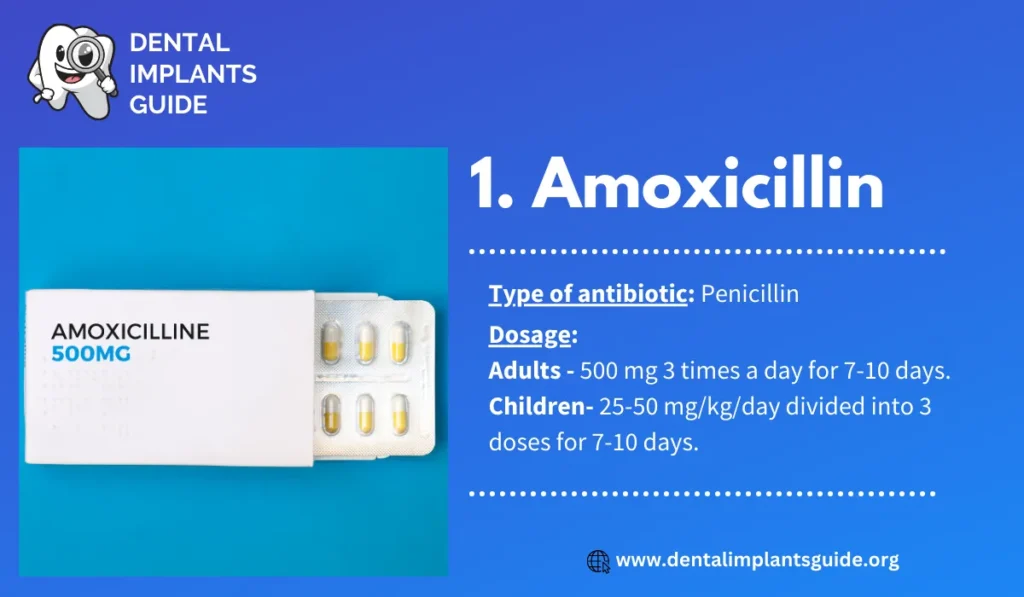
Amoxicillin is a penicillin antibiotic that kills a wide range of bacteria, including many that cause dental implant infections. It is a common first-line antibiotic for dental implant infections, and the majority of people find it tolerable and safe.
2. Clindamycin
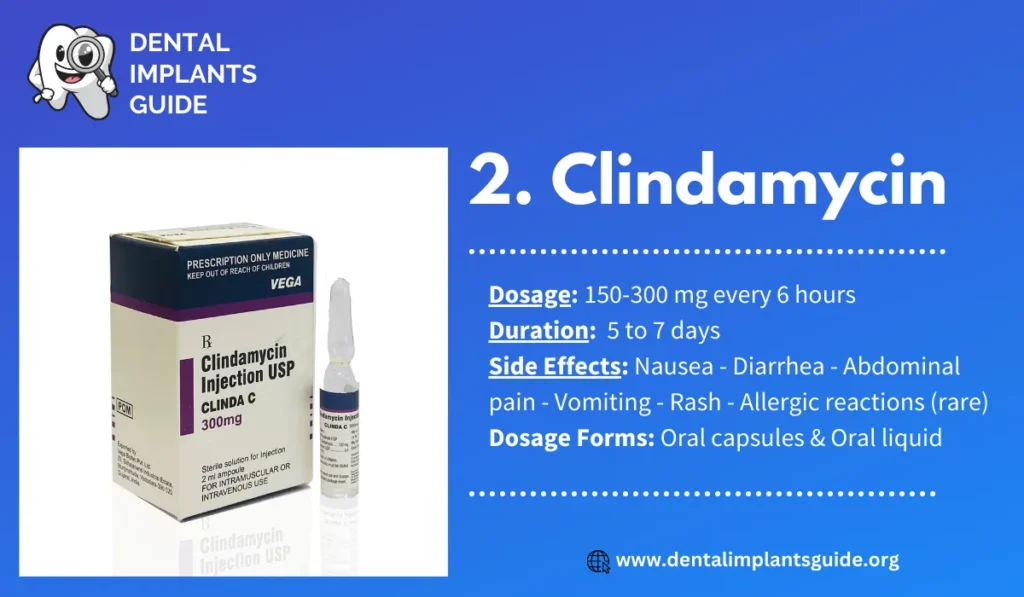
Clindamycin is another antibiotic that is effective against a wide variety of bacteria, including many that can cause dental implant infections. It is frequently prescribed for patients who are allergic to penicillin or have not responded well to other antibiotics.
3. Metronidazole
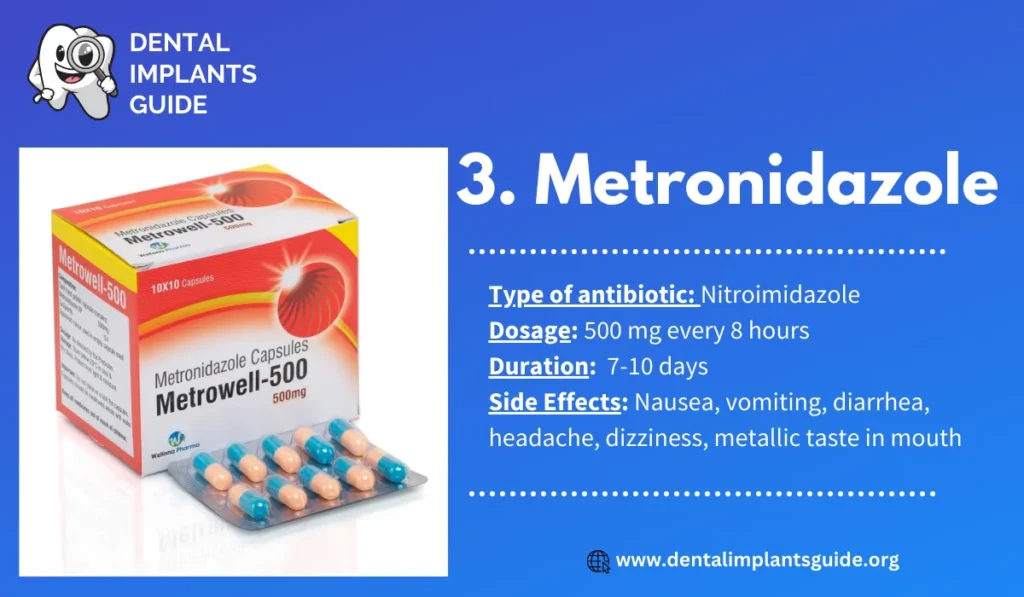
Metronidazole is a different type of antibiotic that is effective against anaerobic bacteria, which are a common cause of dental implant infections. It is often used in combination with other antibiotics, such as amoxicillin, to treat dental implant infections.
4. Azithromycin
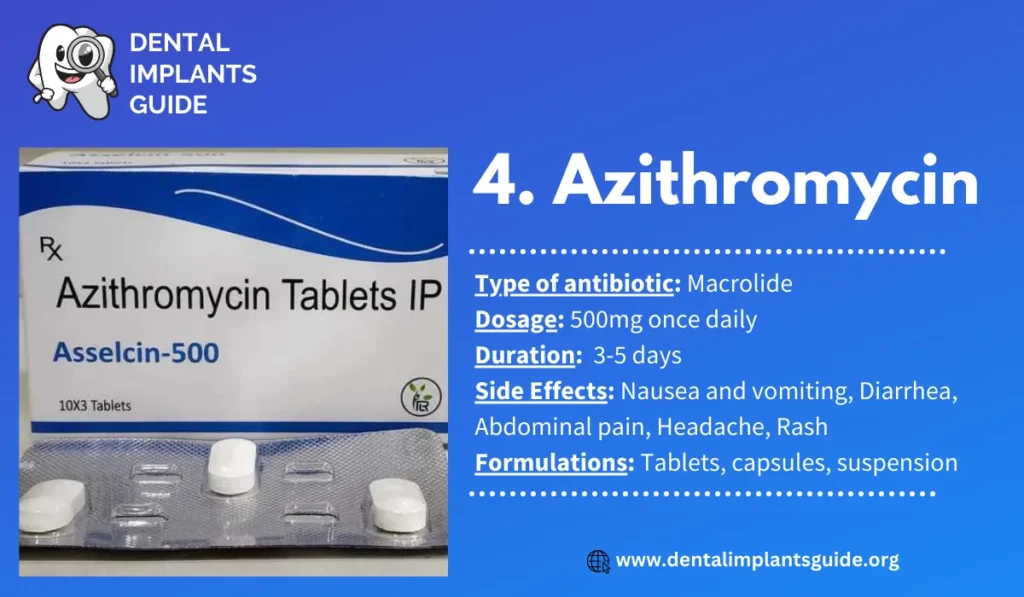
Azithromycin is a macrolide antibiotic that is effective against many types of bacteria. It is frequently prescribed for patients who are allergic to penicillin or have not responded well to other antibiotics. It’s also a good option for people who only need antibiotics for a few days, such as 3-5 days.
5. Penicillin VK
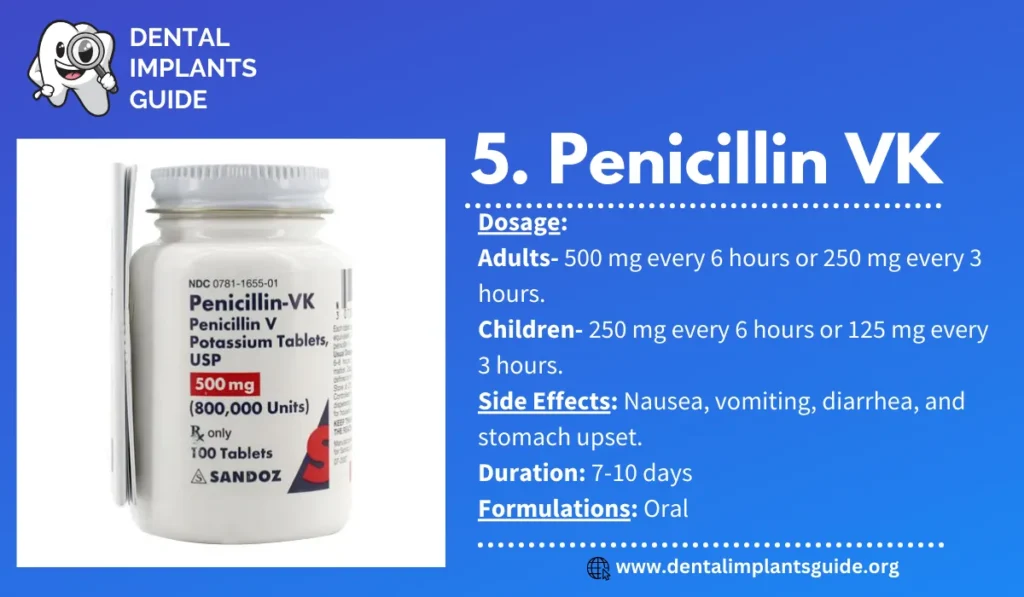
Penicillin VK is a penicillin antibiotic that is effective against many types of bacteria. It is a good option for people who are not allergic to penicillin and do not require antibiotics for an extended period of time.
6. Tetracycline
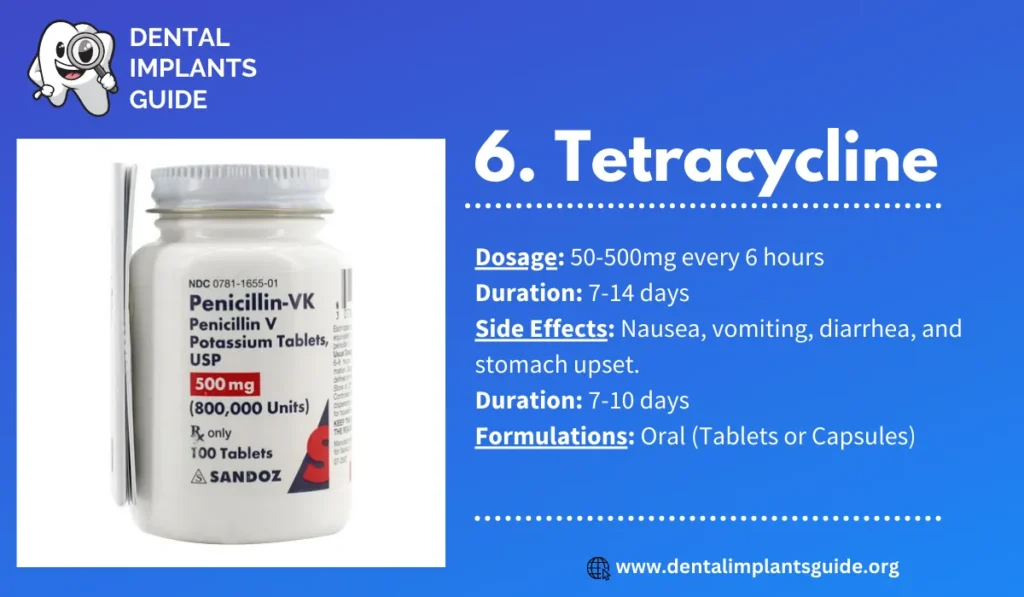
Tetracycline is an antibiotic that has been shown to be effective against a wide variety of bacteria that can cause dental implant infections. It is, however, less commonly used than other antibiotics for dental implant infections because it has more side effects.
Dosage and duration of antibiotics
The antibiotic dosage and duration prescribed for a dental implant infection will be determined by the severity of the infection and the type of bacteria causing it. Antibiotics are typically prescribed for 7-10 days.
Related Article ➦ How Long Should I Take Antibiotics After Dental Implant?
Side effects of antibiotics
Antibiotics can cause a variety of side effects, including:
- Nausea
- Vomiting
- Diarrhea
- Rashes
- Yeast infections
- Allergic reactions
Tips for taking antibiotics
- Take antibiotics exactly as directed by your doctor or dentist.
- Antibiotics should be taken at the same time every day, with or without food.
- Even if you feel better sooner, finish the entire course of antibiotics.
- If you forget to take an antibiotic, take it as soon as possible. If your next dose is approaching, skip the missed dose and resume your regular dosing schedule.
- Inform your doctor or dentist about any other medications you are taking, including OTC medications, herbal supplements, and vitamins.
Related Article ➦ How To Treat Infection Around Dental Implant?
What percentage of dental implants get infected?
The percentage of dental implants that get infected is quite low, usually around 5% to 10%.
Most dental implant procedures are successful and don’t lead to infections if you take good care of your oral hygiene and follow your dentist’s instructions.
FAQs
What causes dental implant infections?
Infections can happen after dental implants because of bacteria.
How do I know if I have an implant infection?
Watch for swelling, pain, or bad taste around your implant.
Can antibiotics help with implant infections?
Yes, antibiotics can help treat these infections.
What are the best antibiotics for implant infections?
Most common antibiotics for implant infections are: amoxicillin or clindamycin.
Can I take over-the-counter antibiotics for implant infections?
No, only take antibiotics prescribed by your dentist.
How long should I take antibiotics for my implant infection?
You should usually take antibiotics for 5 to 10 days
Are there any side effects of antibiotics for implant infections?
Common side effects are: upset stomach or allergies.
Can I skip doses of antibiotics for my implant infection?
No, take them as prescribed to fight the infection.
What foods should I avoid while on antibiotics for an implant infection?
Avoid acidic, spicy, or hard foods if they irritate your mouth.
Are there any natural remedies for implant infections?
Good oral hygiene and warm saltwater rinses can help.
Can smoking affect my implant infection treatment?
Smoking can slow down healing; try to quit or cut down.
Final Thoughts
Taking care of dental implant infections is super important for your oral health. We’ve shared about the 6 best antibiotics that can help if you ever face this problem. Remember, it’s always best to talk to your dentist if you suspect an infection.
But beyond antibiotics, don’t forget the basics: good oral hygiene is your best friend in preventing infections. Brush, floss, and rinse regularly. And if you do end up needing antibiotics, follow your dentist’s advice, finish your course, and reach out if you have any concerns.
Your smile is worth looking after, so stay informed and keep those teeth and implants in great shape!
